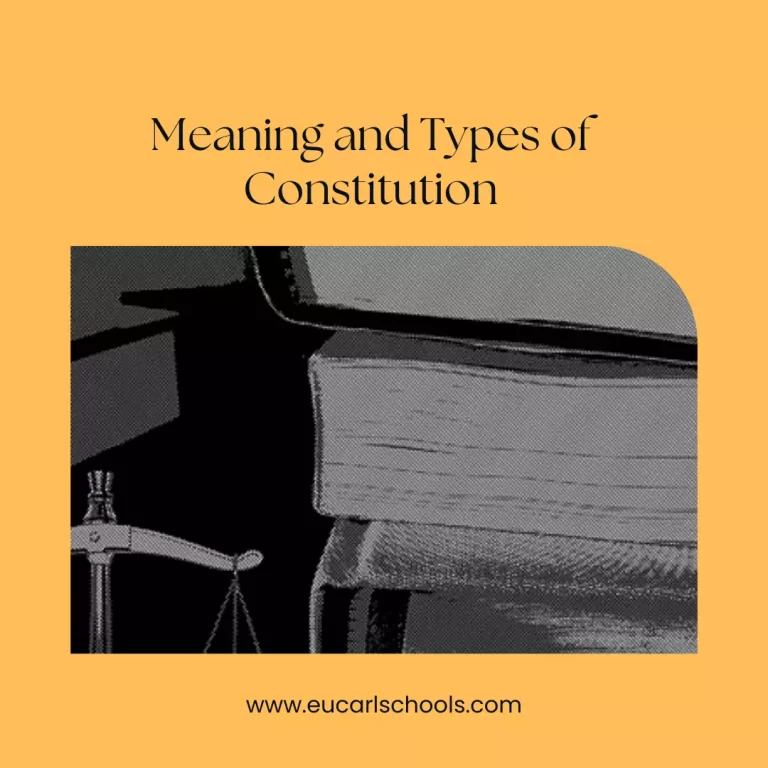Major Pros and Cons of Unitary System of Government
Government is a system of rulership that illustrates how people and their resources are regulated. These systems like the unitary system of government, the federal system, or even confederal systems are relative to different countries with certain parts of the world showing preference over confederal or even unitary system as the case might be.
The influence over which system of government is chosen could be based on the foundational ideologies from their colonial masters or even what has been proven to work over a certain period of time.
Strictly in this article, we would consider the unitary system of government and its attendant advantages and disadvantages. First things first, we would try to understand what the unitary system of government is all about. A unitary system of government is such a system where central powers or authority of a state reside chiefly on the federal level of government.
Characteristics of Unitary System of Government
Here are some of the many characteristics of a unitary system of government. They include:

Centralization of Powers
With a unitary system of government, there are no shared powers, and every responsibility that is accrued to a government rests solely on the federal level of government.
This, therefore, implies that the central government has the freedom to express and exercise its powers without actual checks and balances, it must be said that this can spell doom for any nation if the central government is corrupt.
Uniformity of Laws
The laws guiding the governed are singular since they are all sourced from a central government that has a monopoly on powers. There is no territory of the state that has a distinct law because each territory right in the said state has no specific and sub-structured government like in a federation to control it.
Flexible Constitution
Yet another characteristic of a unitary system of government is the existence of a constitution that can easily be tweaked in the wake of recent developments.
This is made possible because there is no consensual agreement between other sub-governments to enact a constitution. The constitution in unitary states is not rigid as you will find in federal states.
Despotic Tendencies
There are higher chances for unitary states to morph into despotic states where the leader of the central government does not want to leave office especially when there is a demand for such in the case of failure in doing responsibilities.
Simple and Single Government
Generally, it is recognized that unitary states run a very simple government maybe with the exception of Great Britain. The unicameral legislative system which infers there is a single chamber that is responsible for all things legislation is operational in the unitary system and this really can be very cheap since it means only a few people would seat in the legislative house.
Swift Decision Making
Unitary states are characterized by a single government that is saddled with the responsibility of administration and decision-making.
By implication, there needs no reason for consultation with other sub-governments like in federal states which gives rise to bureaucracy, and consequently matters key to the wellbeing of the citizens are delayed.
Favors Small Nations
Small nations even their smallest towns which have a very small geographical size or generally a low population are unitary states as this system of government proves to be cost-effective compared to the many other systems of government.
Easily Amendable Constitution
Constitutions are the guiding rules and principles that hold sway over the government and the governed. However, many times these constitutions need to be changed to stay in touch with the new realities internal and external to the state.
In wake of such times, unitary states have the luxury of changing to fit with the times since their constitutions were in the first place put together by a single and central government.
Fostering Unity
A unitary system of government indeed does enhance national integration amongst the citizenry. This is because the citizens are tasked with obeying only a single government and not like other systems of government where the different territories of the state have different governments which could differ in ideologies.
Read Also: 5 Advantages and Disadvantages of Mixed Economy
Disadvantages of Unitary System of Government
Excessive Burden of Responsibility
The existence of a central government in the unitary system can many times be excessively burdensome for a single government to contain. This can in turn out reduce efficiency in carrying out the very necessary tasks that Are expected of every government to do.
Limited Options
A very sad disadvantage of the unitary state of government is its monotony. The governmental powers are concentrated in a single government and thus when they fail in their responsibilities because of their ideologies, there are no available options for the citizenry to choose from that could offer fresh air in terms of better ideas and policies.
Dictatorial Tendencies
Another disadvantage that can prove very costly for unitary states would be the fact that the leaders who are elected into these central governments can be so carried away that they forget they were placed there to serve.
The abuse of these powers can fast develop into depots who refuse to vacate office when their failures are recognized by the electorate.
Overall Underdevelopment
Government should always have a healthy relationship between them and the governed if there must be any development in a nation.
This sadly can not be said to be true in the unitary states especially when the contributions of the citizens would be highly needed. In this case, the citizens do not have the opportunity of choosing various channels to express their views.






